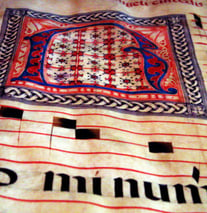Scripture: Lectionary #242. March 8th . Hosea 14:2-10. Psalm 81:6-8,8-9,10-11.14.17. Mark 12:28-34:
We are greeted with two great lessons in love and they stress what Biblical love is: a response to God with our will and then doing acts out of love. Will and action are involved in the concept of biblical love. The emotive features take a second place. Hosea is mostly equated with loving his wife who formerly was a prostitute. Unfortunately, despite their having two children, she returns to her former lover(s). Hosea uses this personal experience as an example of Israel, the spouse of God, and her forgetting the promises of fidelity she made on Sinai to the God of mercy, loving-kindness, and forgiveness. We are only privileged to hear parts of the last chapter where the positive elements of Hosea’s prophecy are mentioned. Before that there are many prophetic passages about the behavior of Israel and its infidelity to the covenant. “Hosea beseeched his compatriots to return to God and thus save themselves. Though threatening dire punishment for Israel’s defection, the prophet still presents God’s mercy as the supreme force. There will be a new betrothal, he proclaimed, everlasting in justice, kindness, and faith. “ (Jewish Encyclopedia, p.192).
Hosea is among the earliest of the great prophets like Isaiah and Amos (around 750 B.C). Even though we know little about him from the scroll attributed to him, we do have his many prophecies in chapters 4-11. Today we have chapter 12 as our reading and it is the summary of Hosea’s work. He has used his own unfaithful wife as the symbol of God’s relationship with Israel—a marriage of the divine and the human through covenantal love. Baal is the name of the god that seems to be followed by the unfaithful ones; baal also means “husband” so the metaphor is even made more explicit in the sin of idolatry. There is hope in the final chapter for a reconciliation of God with Israel. Incidentally, the word reconciliation means the bringing back someone to the love and friendship of God.
Jesus and a scribe are in dialogue about the greatest of the commandments. Jesus, as a faithful Jew, starts with the Sh’ma ( Dt.6:4-6) and adds Leviticus 19:18b to make the commandments of love of God and neighbor one, while reaffirming the greatest as contained in the Sh’ma. The scribe carefully follows Jesus’ teaching and accepts it with high praise and calls Jesus good (kalos). The scribe is the only one to respond this way to Jesus for on all other occasions Mark uses the plural “scribes” to show the strife and opposition from the scribes against Jesus together with the elders and priests. Jesus uses a principle of exegesis used by the scribes and scholars, namely, to join two texts to make clear the statement he offers to the sensible and insightful scribe. This is one of the few occasions in Mark where Jesus praises someone. Mark’s Gospel is one that is “stark, dark, and laconic.” (Fr. John P. Meier). Amen.
Copyright 2013 Fr. Bertrand Buby, S.M.
About the Author

Guest
We welcome guest contributors who graciously volunteer their writing for our readers. Please support our guest writers by visiting their sites, purchasing their work, and leaving comments to thank them for sharing their gifts here on CatholicMom.com. To inquire about serving as a guest contributor, contact editor@CatholicMom.com.



.png?width=1806&height=731&name=CatholicMom_hcfm_logo1_pos_871c_2728c%20(002).png)
Comments